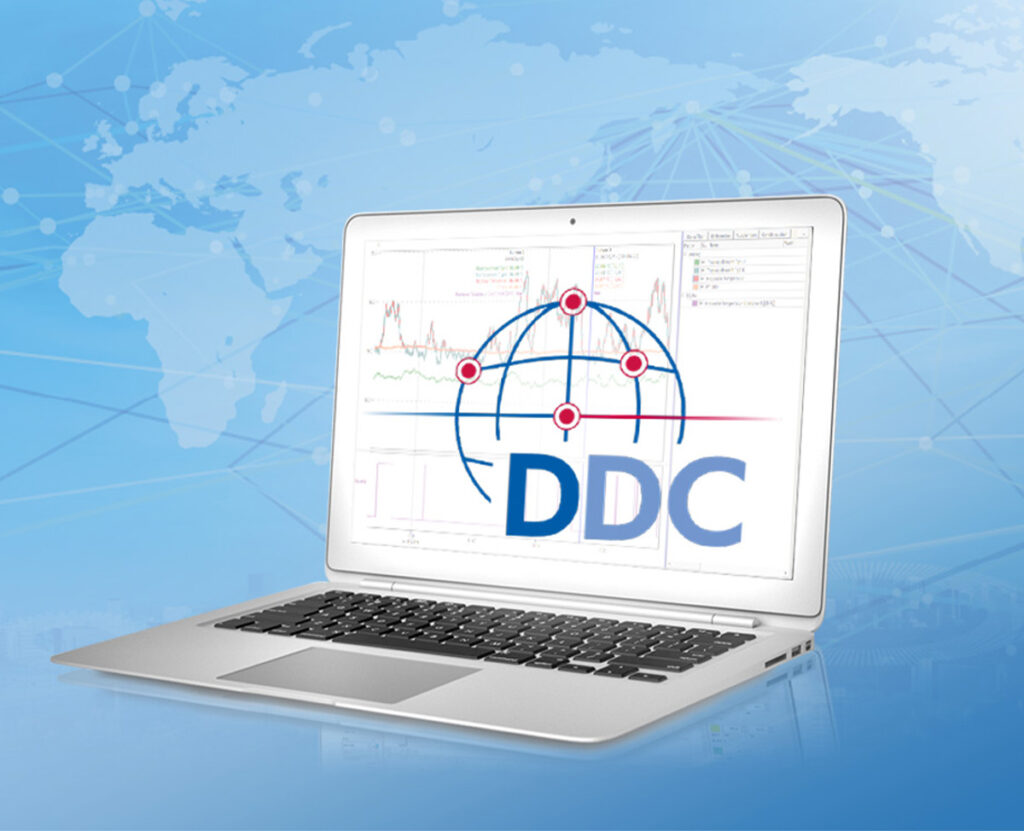What is a CAN bus data logger?
CAN bus data loggers are primarily used in industry. The Controller Area Network (CAN) bus is a serial fieldbus system that enables manufacturer-independent (non-proprietary) data exchange between devices. CAN bus data loggers are characterized by a simple setup, extensive configuration options and self-sufficient operation. Find out in this article what CAN bus data loggers can do and what advantages result from the use of CAN bus data loggers.
CAN bus - What exactly does that mean?
Interfaces are required so that different components of a technical system can communicate with each other. Information is transmitted via these interfaces. Up until the 1980s, these interfaces were networked with ever more extensive cable harnesses. In a standard car at the time, these wiring harnesses could easily reach a total length of up to two kilometers. In 1983, Bosch, in collaboration with Intel, developed a new system to reduce cable harnesses - and thus save weight and costs. This system was christened the Controller Area Network: the CAN serial bus system began its triumphal march.
In bus systems, information is transmitted via a common data line from which individual, short spur lines branch off to the individual components. On the one hand, this structure reduces cabling and, on the other, additional components can be connected at a later date without difficulty. As the data flow takes place via a common main line, a so-called protocol must be integrated into the bus system. These protocols control the data flow and route the data packets precisely to the respective connected components. In CAN bus systems, the components are connected to each other via a 2-wire bus and an additional earth cable.
Physical basics of CAN bus
For CAN bus systems, two-core copper cables are usually used for data transmission. Alternatively, two additional wires are also used for the power supply and earth. The data transmission rates depend on the cable length. The higher the required data rate, the shorter the cables need to be. The beginning and end of each bus line are terminating resistors with 120 Ohm. Sub-D connectors are primarily used to connect the individual components within a CAN bus system, but screw connections are also used. CAN has been standardized according to ISO 11898 since 2003.
The advantages of the CAN bus system
In addition to significantly lower costs, CAN bus systems also offer a high level of interference immunity and the ability to transmit data in real time. The electrical interference immunity of the CAN bus is achieved by a so-called "differential signal". For this purpose, one bit is mapped on two lines in parallel with a potential change in the opposite direction. If interference occurs, this interference affects both lines in the same direction. However, as the two lines have opposite levels, the difference between the two levels remains almost the same even in the event of interference. This "Common Mode Rejection Ratio" (CMRR) makes CAN bus systems extremely insensitive to electrical interference.
Further advantages
- Speed: CAN bus systems enable the transmission of data at high speed. This enables real-time applications, such as live monitoring of machines or test benches
- Simple installation: CAN systems require significantly fewer cables and can be connected quickly and easily via connectors
- Reliable: The fewer plugs and cables in use, the fewer potential sources of error there are to worry about.
- Cost-efficient: CAN systems place minimal demands on the hardware and signal processing, and the costs for acquisition and operation are correspondingly low
What is a CAN logger?
CAN logger is short for CAN bus data logger. CAN loggers are data loggers that can be connected directly to existing CAN bus systems. This type of data logger can process different protocols and can be used flexibly. Among other things, CAN loggers can collect measurement data via the following protocols:
- OBD2 - cars, trucks etc.
- J1939 - Trucks, tractors, forklift trucks
- CANopen - Machines and systems, robotics
- DeviceNet - Automation
- ISOBUS - Agriculture
What data can a CAN logger process?
In principle, CAN loggers can record all data that is sent in a controller area network. Common applications are, for example, speed monitoring of drive motors, temperatures of cooling lubricants or oils, fill levels or pressures. The Can Bus interface of the Delphin CAN loggers is freely programmable. This means that any identifier can be read, scaled, processed and saved.
Where are CAN bus data loggers used?
The high flexibility of the CAN loggers enables an extremely wide range of applications. The advantages of CAN loggers are particularly evident in self-sufficient, mobile use. Typical areas of application for CAN bus data loggers are :
- Transportation systems
- Shelf robot
- Vehicles + airplanes
- Plant + machinery
- Vibration measurements
Which Delphin data loggers communicate via CAN bus?
Delphin Technology offers a comprehensive range of data loggers that can communicate via CAN bus. In addition to the Expert Logger The modular measuring, control and monitoring devices of the ProfiMessage-series via bus interfaces. In the field of vibration measurement, Delphin offers the Expert Vibro a CAN bus-capable data logger. For transient recordings, the Expert Transient as a stand-alone data recorder for the synchronous recording of transient and periodic processes.
Versatile fieldbus interfaces in one device
Data loggers that are used for measurement, control and monitoring tasks should have the most universal connection options to the running process possible. ProfiMessage D, a combination device from Delphin Technology, provides a wide range of fieldbus interfaces in a compact space. With internal control, regulation and monitoring functions, measured values can be recorded and monitored simultaneously and regulation and control tasks can be processed autonomously. With a freely programmable CAN bus interface, two separately usable PROFIBUS DP slave interfaces, Modbus TCP/RTU and RS232/RS485 connectivity, the ProfiMessage data logger can be used to comprehensively monitor and supervise industrial processes and systems or to implement measurement tasks in vibration analysis.
Significantly expand the possibilities of CAN bus data loggers with the right software
The broad functionality of CAN bus data loggers is significantly extended with the appropriate software! With the Delphin Data Center, Delphin Technology provides its customers with centralized DAQ measurement data management. This allows the data collected by CAN loggers to be networked, analyzed and stored. The Delphin Data Center offers maximum performance in the processing and provision of data and can be flexibly adapted to all requirements in the field of measurement data management without the need for programming. Whether in the test field, in the monitoring of machines and systems or in service life testing: the Delphin Data Center is the efficient solution for modern, high-performance measurement data management. Another advantage of the Delphin software is that it can not only record data from CAN bus loggers, but also save, export or play back the information in a structured way with other data records. The high level of flexibility is complemented by the ability to process all CAN bus data available in the measurement network - even from third-party manufacturers or a PLC. Of course, the collected data can also be exported clearly, quickly and at the click of a mouse and displayed on all common mobile and stationary end devices.
The right software for your measurement and testing solution
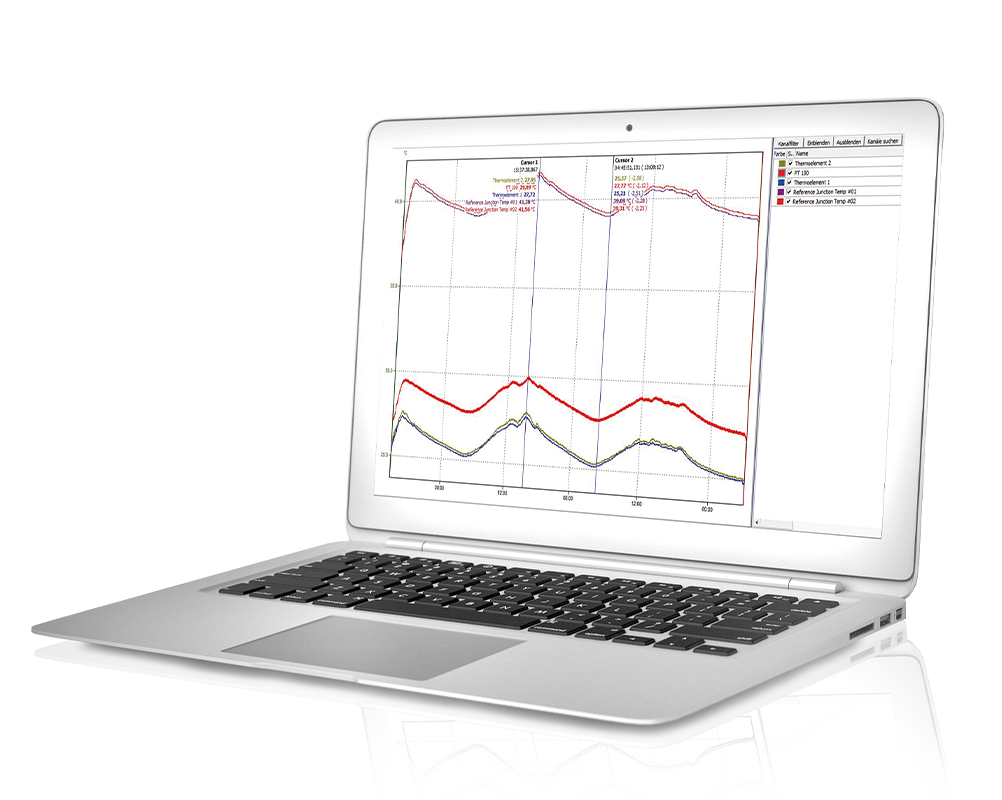
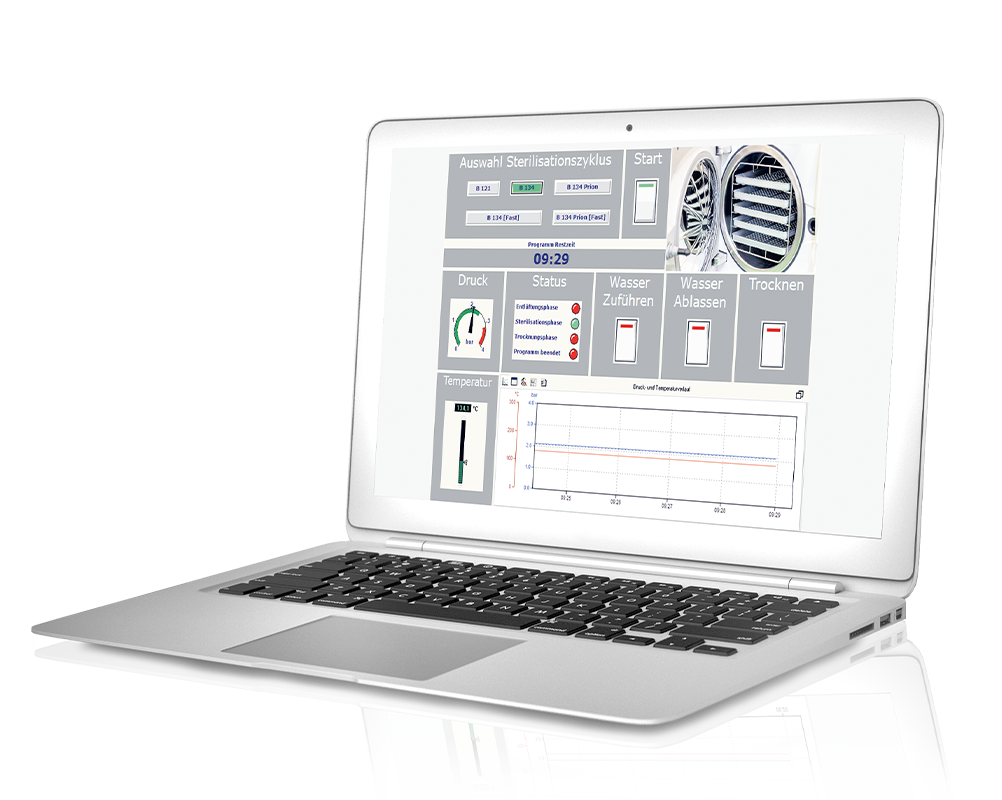
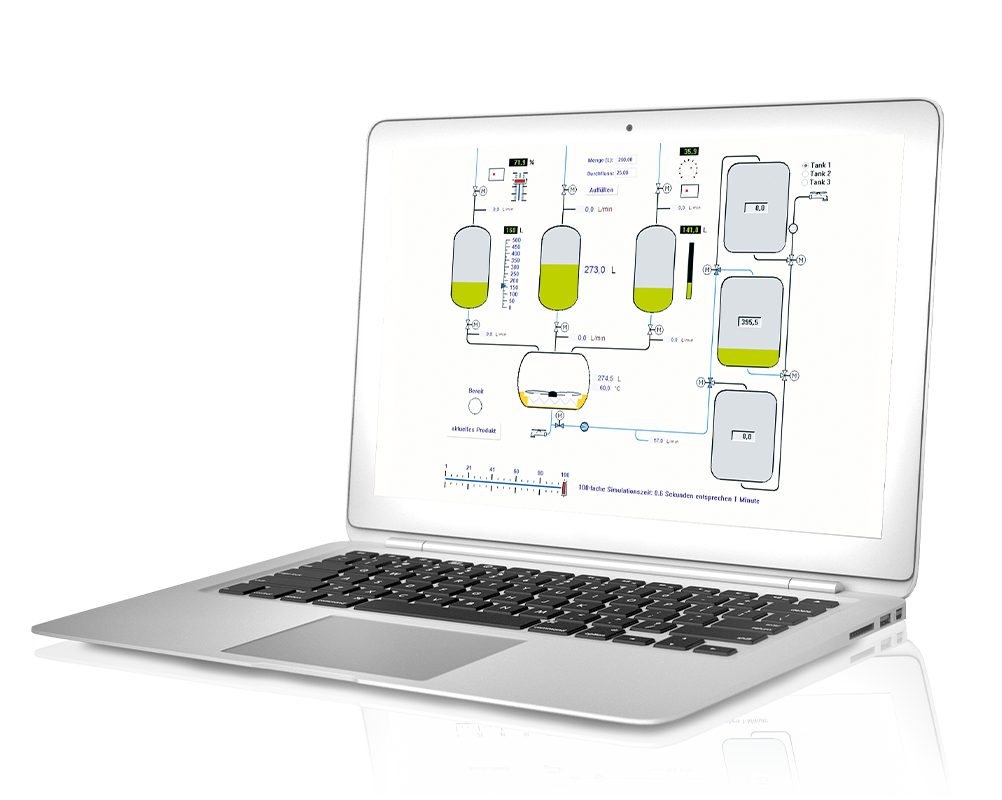
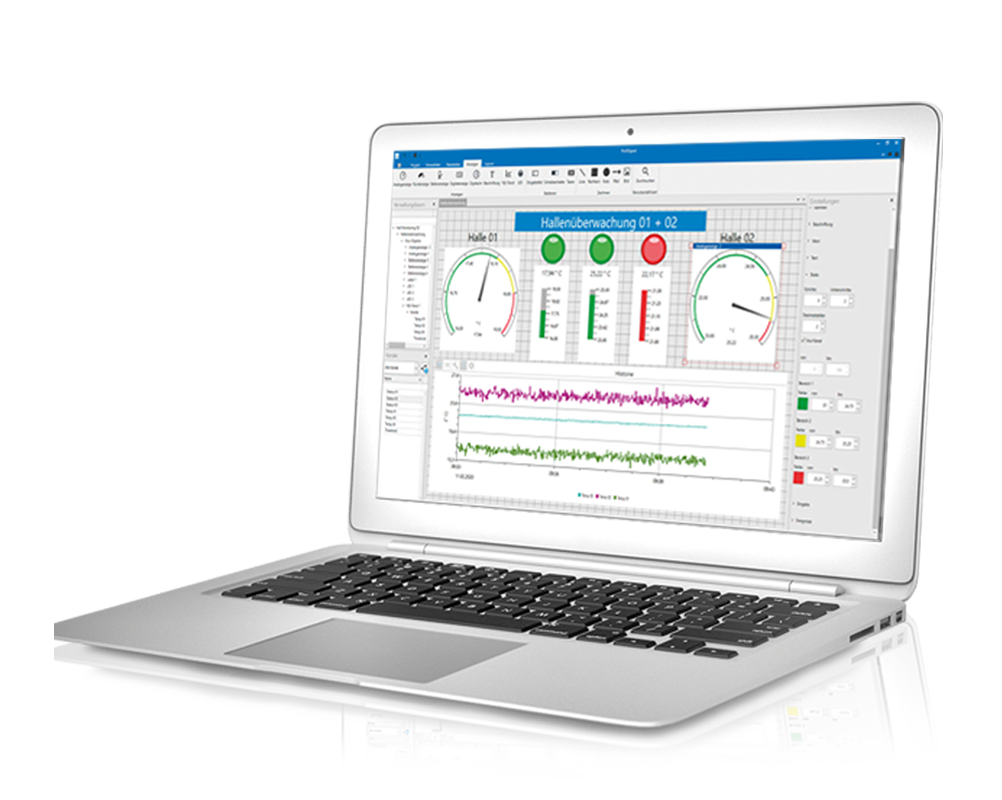
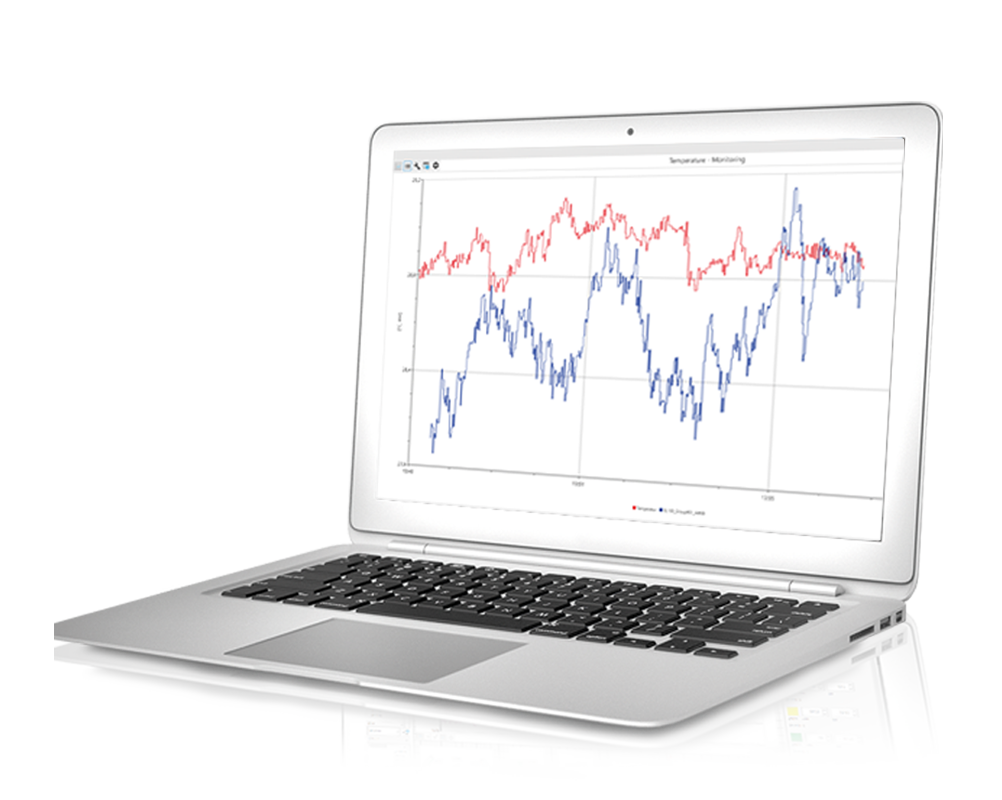
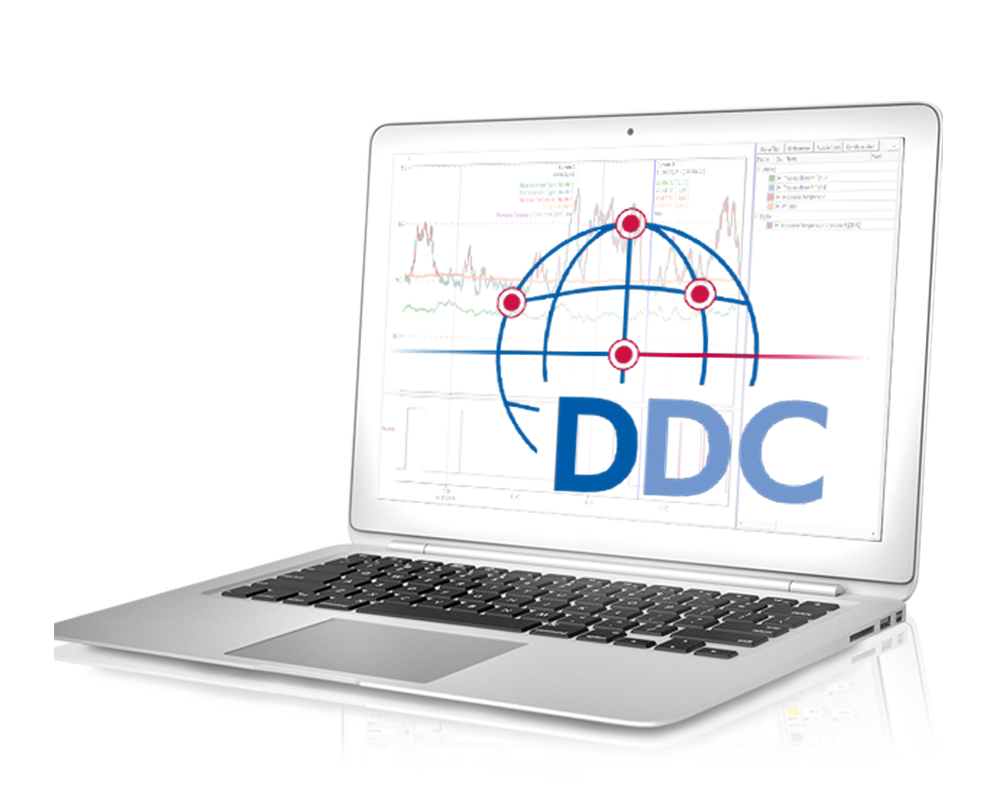
Data acquisition and analysis
With ProfiSignal Go you can display online data from the Message and Expert hardware in diagram form. Numerous analysis functions, such as zoom, cursor, movable axes, flags, ASCII export and calculation channels, enable fast display of measured values and post-processing.
To the product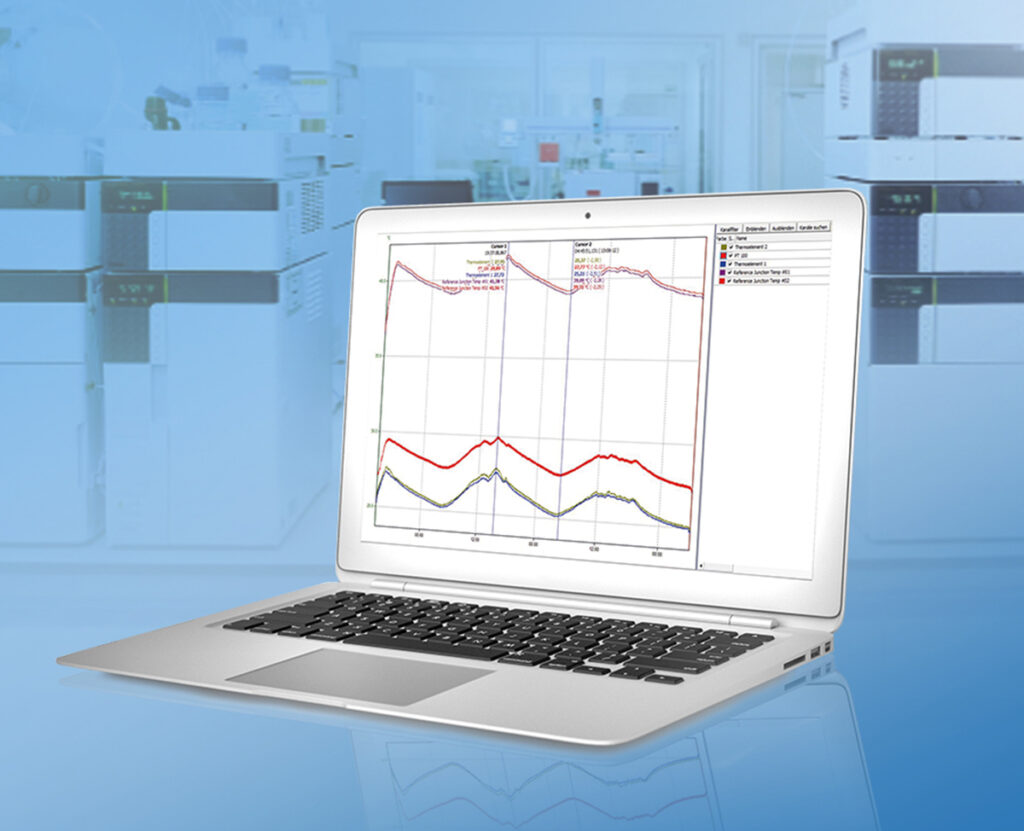
Operating and monitoring
ProfiSignal Basic combines the functions of ProfiSignal Go with operating and monitoring elements of process visualisations, e.g. digital and analogue displays, switches, buttons and signal lamps. With Basic, you can create everything from simple visualisation diagrams to complex visualisation systems.
To the product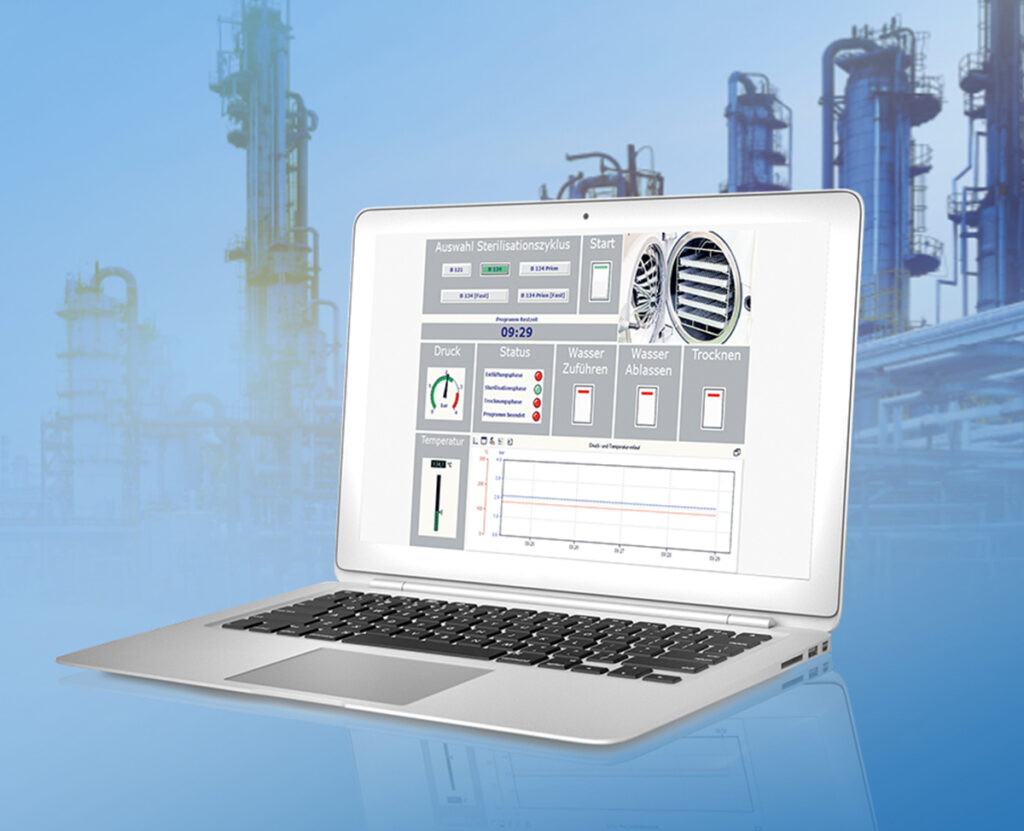
Automate and control
ProfiSignal Klicks supplements ProfiSignal Basic with functions for process automation. Structural diagrams for mapping the process as well as a script language (completely operable with the mouse) enable even the non-informatician to create complex test stand and automation applications with automatic report generation.
To the product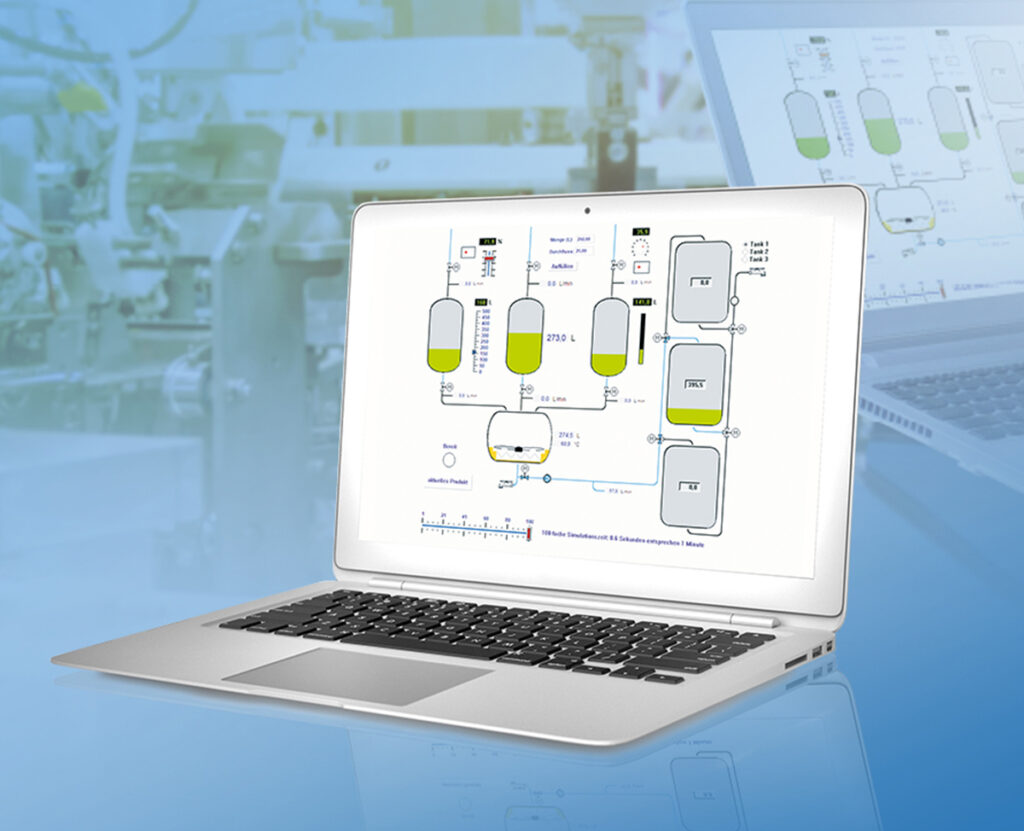
Visualisation and operation
With ProfiSignal 20 Basic you can create individual diagrams using a wide range of operating and monitoring elements. Both continuous processes (e.g. production data acquisition) and discontinuous measurement tasks (e.g. test measurements) can be visualised, operated and monitored without any programming effort. You can create the operating and monitoring diagrams by assembling and configuring the prefabricated elements.
To the product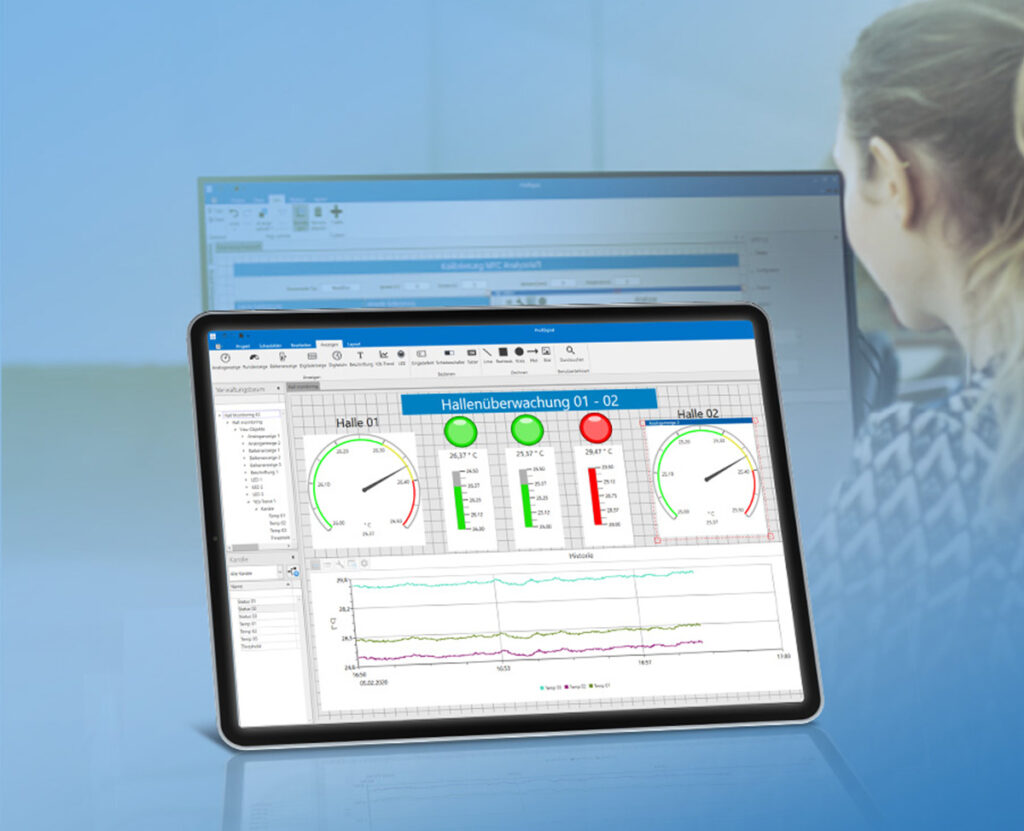
Fast project planning and analysis of measurement data
With ProfiSignal 20 Go you can visualise your measurement data in just a few steps, both online and offline, in various diagram types, monitor, analyse, archive as a measurement file or export directly in the appropriate file format.
To the product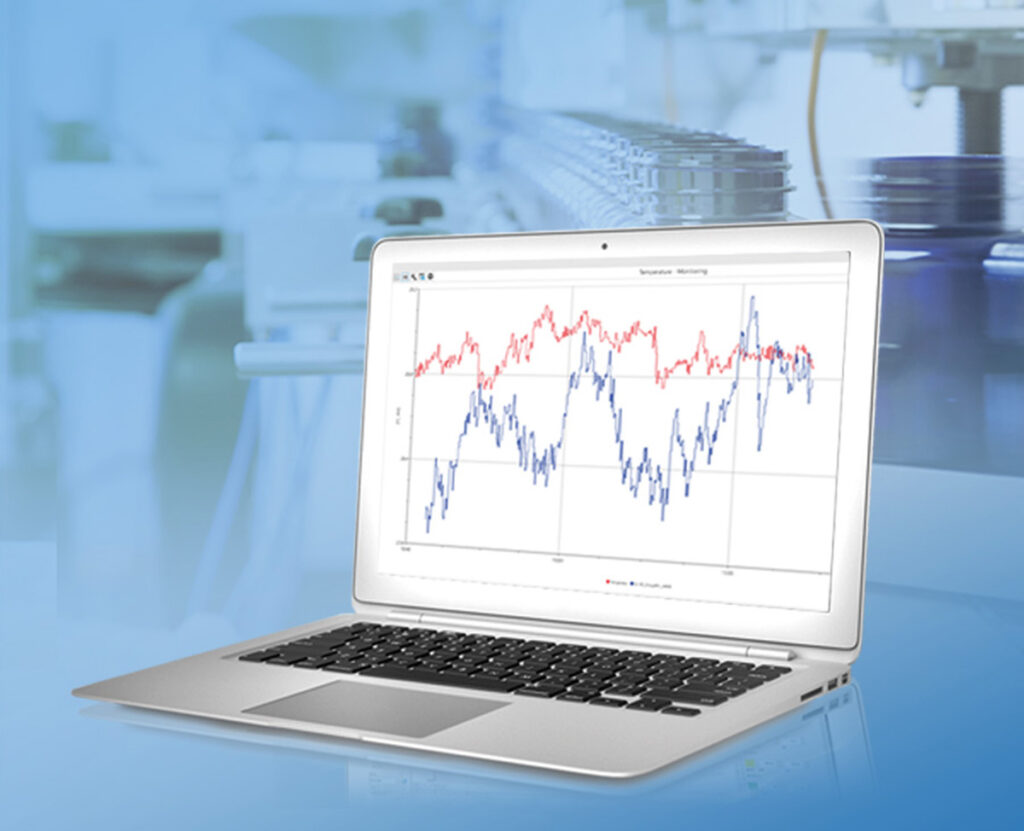
Central measurement data management
The Delphin Data Center is the solution used for the worldwide measurement networking and control of plants, machines and test stands.
To the product